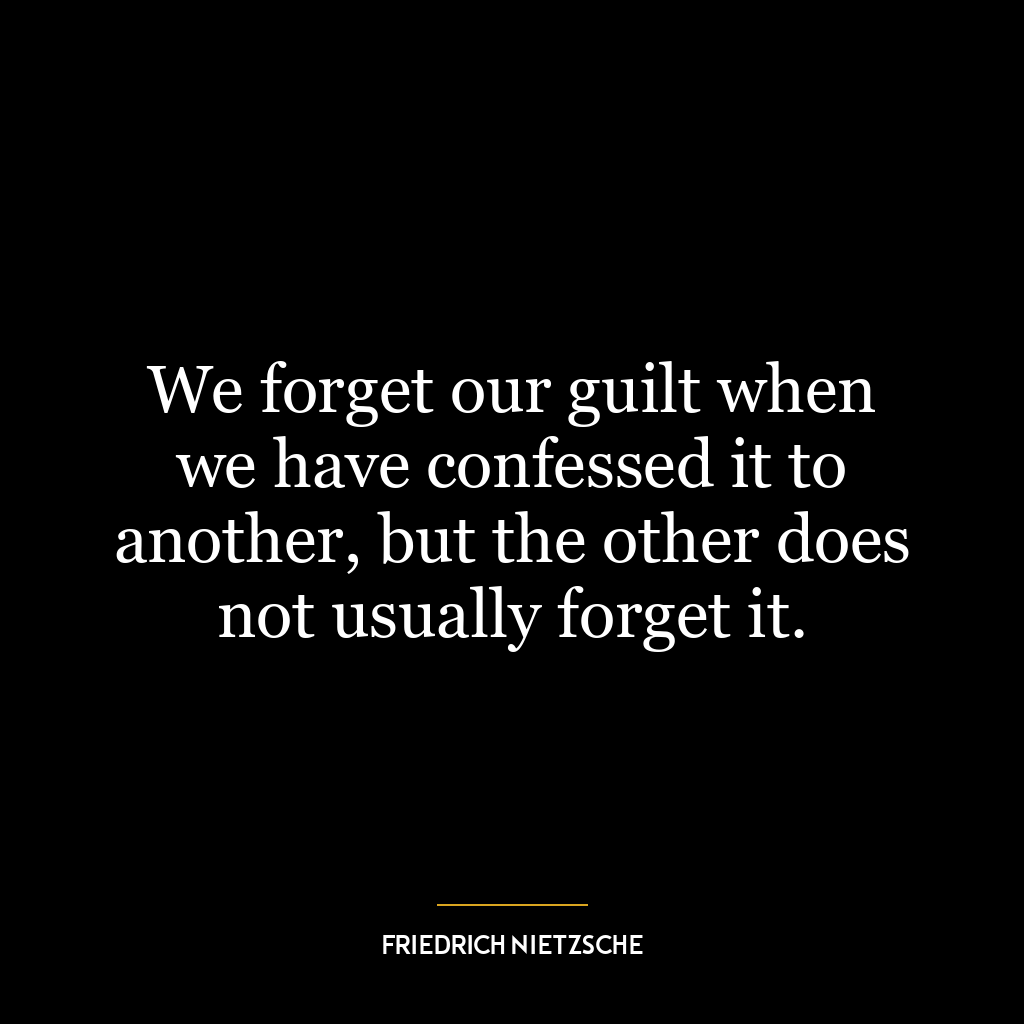It is the confession, not the priest, that gives us absolution.
This quote, “It is the confession, not the priest, that gives us absolution,” is a profound reflection on the nature of forgiveness, guilt, and personal responsibility. It suggests that the act of confessing, of acknowledging our wrongdoings, is more important than the figure who supposedly absolves us of these sins. It underscores the idea that the power of healing and forgiveness comes from within us, not from an external authority.
The act of confession is a deeply personal and transformative process. It involves self-awareness, honesty, and the courage to confront our own flaws and mistakes. When we confess, we not only admit our wrongdoings but also express our desire to make amends and change for the better. This act of self-realization and the willingness to change is what truly absolves us.
In contrast, the priest, or any external authority, merely serves as a facilitator or a witness to this process. They do not have the power to absolve us unless we genuinely confess and seek absolution. In other words, the power to forgive ourselves and to change lies within us, not in the hands of others.
Applying this idea to today’s world or personal development, it suggests that true change and forgiveness come from within. For instance, in the context of personal development, it implies that self-improvement begins with self-awareness and honesty. We cannot improve or grow unless we first acknowledge our weaknesses and mistakes. Similarly, in the context of social issues, it suggests that societal change begins with individuals acknowledging their prejudices and biases.
Moreover, this idea also has implications for mental health. Often, people carry guilt and regret for their past actions, which can lead to mental health issues like depression and anxiety. According to this quote, the first step towards healing is to confess, to acknowledge these feelings of guilt and regret, and then forgive oneself. This process of self-forgiveness can be a powerful tool for improving mental health and overall well-being.
So, whether it’s personal growth, societal change, or mental health, the principle remains the same: absolution comes from the act of honest confession, not from an external authority. It’s about taking personal responsibility for our actions, acknowledging our mistakes, and making a conscious effort to change and improve.









